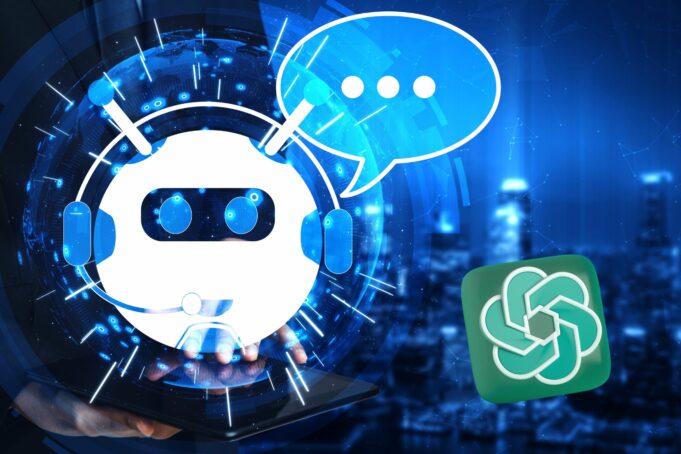The Youngistaan, 20 sep
Artificial intelligence tools like ChatGPT have become an essential part of our daily lives, from writing and brainstorming to customer service and technical solutions. However, when the platform experienced an unexpected outage on September 19, 2024, it sent shockwaves across the digital world. This downtime quickly went viral across Google, creating a buzz and leaving millions in the U.S. scrambling for answers. Here’s the full breakdown of the event and how it quickly became a trending topic.
The Sudden ChatGPT Outage: A Digital Panic
The outage, which began in the early hours of September 19, was initially thought to be a minor technical glitch by users. However, as hours passed without any resolution, panic set in. Individuals, businesses, and professionals across the U.S. found themselves unable to access the AI tool they heavily relied upon. By noon, thousands of users began reporting issues, with Downdetector showing over 4,000 complaints within the U.S. alone.
This wasn’t just a problem for casual users asking random questions — many professionals and companies rely on ChatGPT for key tasks like customer service automation, data analysis, and content creation. The outage forced businesses to revert to manual operations, which slowed productivity significantly.
Impact on Various Sectors
1. Freelancers and Content Creators Stuck: One of the hardest-hit groups was freelance writers and content creators. Many professionals rely on ChatGPT for generating ideas, editing, and even creating posts on social media platforms. Suddenly, these users found themselves in a bind. Deadlines loomed, and with their primary tool unavailable, they had no other options. A New York-based freelance writer, Jackson, shared, “It’s like being a writer in the pre-digital age again. I couldn’t meet my deadline because ChatGPT, my brainstorming assistant, was down.”
2. Customer Support Systems Falter: Several businesses that integrate ChatGPT into their customer service platforms were left without functioning chatbots. This resulted in an overwhelming load on human agents, causing delays and frustration among customers. Major companies saw delays in responding to inquiries, leading to complaints flooding social media platforms.
3. Tech Developers and Startups Disrupted: The API-based startups and small-scale tech developers who use ChatGPT for coding, debugging, and automating certain workflows also faced significant challenges. One developer said, “Our chatbot went offline, and suddenly we had angry customers with no way to respond.”
Social Media Outcry: #ChatGPTDown Trends
As people started to realize the issue wasn’t just a brief glitch, social media platforms exploded with discussions about the outage. Twitter (now X) saw hashtags like #ChatGPTDown and #AIOffline trending throughout the day. Memes, jokes, and frustration-filled posts flooded the platform.
Some users humorously shared, “Guess it’s back to using my own brain for a while.” Others raised serious concerns about AI reliability, stating, “We are too dependent on AI systems; what happens when they fail like this?”
The viral spread on social media played a massive role in turning this into a Google-trending topic. People searched for answers, wondering when the AI tool would be restored, pushing search volumes for “ChatGPT down” to unprecedented levels.
Why Did This Outage Go Viral?
The viral spread of the ChatGPT outage can be attributed to multiple factors:
– Massive User Base: ChatGPT is used by millions worldwide, and the U.S. alone accounts for a large portion of this user base. When such a widely-used tool faces issues, it naturally sparks widespread concern and a need for immediate answers.
– Business Dependence on AI: Many businesses, especially in the U.S., have integrated AI into their daily operations. A sudden disruption impacts entire workflows, leading to increased online searches, forum discussions, and social media debates.
– Search Behavior: As more users turned to Google to find out why ChatGPT was not working, search trends shot up. Keywords like “ChatGPT not responding,” “ChatGPT outage update,” and “ChatGPT down solution” dominated the search engine.
OpenAI’s Response to the Outage
OpenAI, the organization behind ChatGPT, acknowledged the issue within hours of the outage. Their official status page indicated they had detected a system failure that was affecting both the chatbot and API services. While the technical team worked on a fix, OpenAI kept users updated on the progress through their social media channels and website.
By late afternoon, OpenAI announced that they had identified the problem and were actively working to resolve it. However, some users continued experiencing issues for several more hours, adding to the frustration.
The Long-Term Consequences of the Outage
While the outage was eventually resolved, it left many questioning the future of AI reliability. The incident highlighted the growing dependence on artificial intelligence, with some experts warning that we are becoming too reliant on these systems for critical business and personal tasks.
Discussions around building more robust systems to prevent such failures in the future started surfacing on tech forums. Companies, especially those relying on the API, are now considering backup solutions to avoid a total shutdown in case of future outages.
What This Means for AI’s Future
This ChatGPT outage is a reminder that no technology is perfect, and even the most advanced systems can experience breakdowns. As AI continues to be embedded deeper into daily lives, businesses and users will need to be prepared for occasional interruptions and have contingency plans in place.







